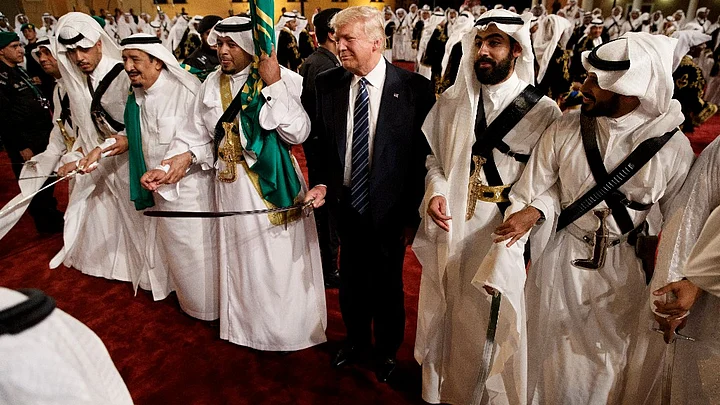As seven Gulf nations severed ties with Qatar, Iran blamed US President Donald Trump’s recent Saudi Arabia visit for the escalating diplomatic crisis in the Gulf.
Hamid Aboutalebi, the deputy chief of staff of Iran’s President Hassan Rouhani tweeted:
What is happening is the preliminary result of the sword dance.
It was a reference to the traditional ceremony that Trump took part in during his visit to Riyadh, as Independent reported.
Bahrain, the United Arab Emirates, Egypt, Saudi Arabia, the Western-recognised governments of Yemen and Libya severed ties with Qatar on Monday, accusing it of being a supporter of terrorism.
Maldives also joined the countries and severed its ties with Qatar.
(Qatar) embraces multiple terrorist and sectarian groups aimed at disturbing stability in the region, including the Muslim Brotherhood, Isis and al-Qaeda, and promotes the message and schemes of these groups through their media constantly,Saudi State News Agency SPA
Qatar was accused of supporting, what SPA described as Iranian-backed militants in its tense, largely Shi’ite Eastern region of Qatif, and Bahrain.
Trump singled out Iran as a key source of funding and support for extremist groups, was the second to face the wrath of Saudi Arabia and its allies.
Cutting of the land, sea and air routes by the energy rich country’s neighbours was a “violation of its sovereignty”, a statement from Qatar’s foreign ministry said.
The Qatari Government will take all necessary measures to ensure this and to thwart attempts to influence and harm the Qatari society and economy.Foreign Ministry
Doha denied providing support to militant groups and described the crisis as being fuelled by “absolute fabrications” stemming from the hack of Qatar’s state-run news agency in May.
Iran’s foreign ministry spokesperson also urged all parties to resolve disputes via “political and peaceful” means.
The unprecedented rift has the potential to cause massive economic fallout across the Middle East.
Qatar, Saudi Arabia and the UAE have used their oil and gas revenues to influence events in other Middle Eastern countries, and fallings-out between them can alter the political environment in Libya, Egypt, Syria, Iraq and Yemen.
(At The Quint, we question everything. Play an active role in shaping our journalism by becoming a member today.)
